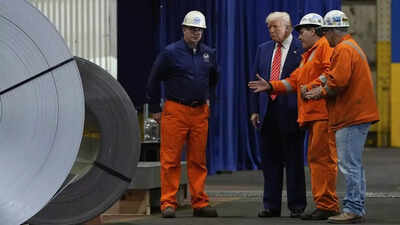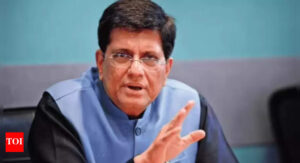
United States has raised tariffs on imported steel and aluminium to 50% beginning Wednesday, according to a White House order signed by president Donald Trump. The decision, framed as a measure to protect domestic industries from foreign “dumping,” doubles the previous 25% levy imposed on these metals.According to the order, “Increasing the previously imposed tariffs will provide greater support to these industries and reduce or eliminate the national security threat posed by imports of steel and aluminum articles and their derivative articles.” President Trump revealed the decision during a visit to a US steel plant in Pennsylvania last week. “At 25 percent, they can sort of get over that fence. At 50 percent, they can no longer get over the fence,” he told workers. “Nobody is going to be able to steal your industry,” he added, vowing stronger protection for American manufacturing.
What Trump’s 50% Tariffs Mean for the Steel Industry
What we know so farSteel and aluminium imports are currently taxed at 25% — a rate in place since 12 March, when president Trump’s order took effect, removing earlier exemptions on steel and raising aluminium tariffs from the levels set in his original 2018 trade measures.While some analysts say Trump’s first-term tariffs helped boost domestic steel and aluminium production, others caution that sharp new hikes could disrupt the industry’s ability to adapt.Many businesses that depend on imported steel and aluminium are already feeling the effects of Trump’s earlier tariffs. The new hikes are expected to push costs even higher. These metals are essential in products like washing machines, consumer electronics, and cars — industries that often rely on global supply chains, especially the automotive sector.Tariffs on UK imports will remain at 25%, as both countries continue trade talks under an earlier agreement, the hike targets other partners. The European Union has already warned of potential retaliation, saying the move undermines ongoing negotiations.Mexico, a major trading partner, plans to seek an exemption. Its economy minister Marcelo Ebrard argued the new tariffs are unfair, especially since the US exports more steel to Mexico than it imports. “It makes no sense,” he said.The latest tariff increase adds pressure to trade talks underway since April, when Trump reimposed 10% tariffs across multiple sectors. With the temporary pause on those hikes expiring in early July, diplomats now face a tightening window to reach workable solutions.














